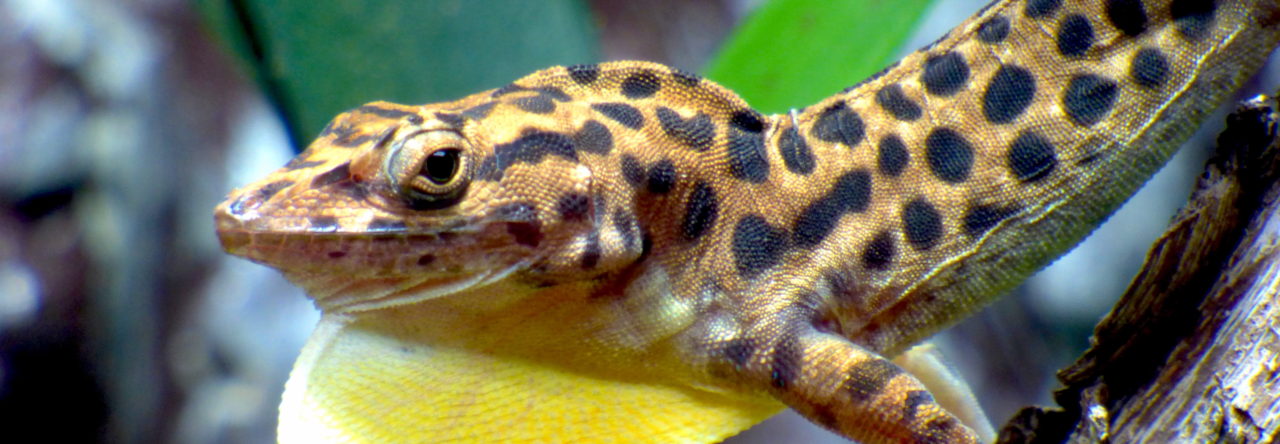
Anole dewlaps are excellent examples of a “complex signalling system.” They exhibit a staggering diversity of colours and patterns. Each dewlap is species specific and adapted to enable these lizards to communicate, attract mates and guard their territories from rivals or competitors. Generally, the colour of a dewlap (and its gorgetal scales) is considered an unchangeable descriptive trait. This colouration is not only relied upon by scientists looking to identify a species, but also by anoles that co-occur and partition with different species in their select niche.
Therefore, it might be surprising to learn that recent observations prove rapid colour change in anole gorgetal scales is possible. The question is, what implications does this have?
A recent publication in IRCF Reptiles & Amphibians details an observation of Anolis amplisquamosus whereby a male individual upon capture possessed black gorgetal scales that quickly changed to pale yellow. Upon consulting the literature, it seems only one prior documentation of colour change in gorgetal scales was reported (Leenders and Watkins-Colwell, 2003), coincidentally also involving a member of the same species clade.
This recent observation of chromatophoric regulation in anole gorgetal scales may be significant in the wider context of anole biology, in confirming photographically that coloration is not always a fixed descriptive or diagnostic feature — at least among members of the A. crassulus species group. Accordingly, this information suggests that some anoles may have the ability to regulate the colour of their gorgetal scales in the same manner as they regulate dorsal and lateral scale colour.
Because the colour of gorgetal scales is a character often used in species identification, understanding the mechanics and the purpose of such a change is crucial; as well as any implications to display behaviour, communication and anole interactions.

